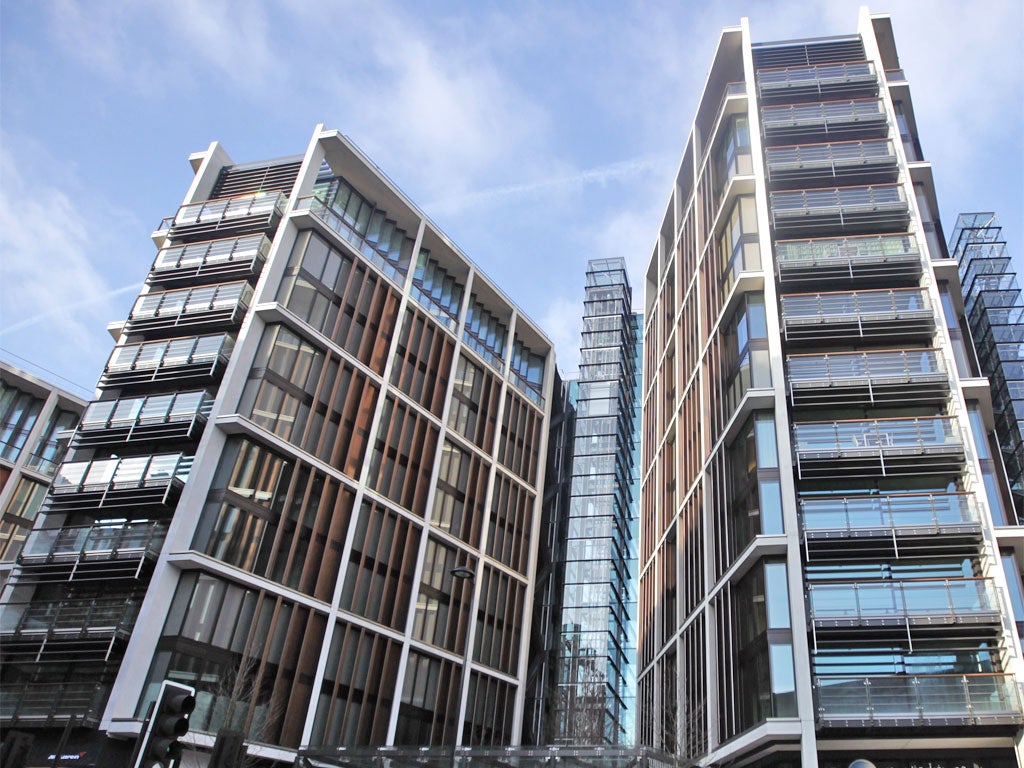Osborne says top-rate tax cut will not hurt coffers

Your support helps us to tell the story
From reproductive rights to climate change to Big Tech, The Independent is on the ground when the story is developing. Whether it's investigating the financials of Elon Musk's pro-Trump PAC or producing our latest documentary, 'The A Word', which shines a light on the American women fighting for reproductive rights, we know how important it is to parse out the facts from the messaging.
At such a critical moment in US history, we need reporters on the ground. Your donation allows us to keep sending journalists to speak to both sides of the story.
The Independent is trusted by Americans across the entire political spectrum. And unlike many other quality news outlets, we choose not to lock Americans out of our reporting and analysis with paywalls. We believe quality journalism should be available to everyone, paid for by those who can afford it.
Your support makes all the difference.The top rate of income tax will be cut from 50p to 45p in April next year, George Osborne confirmed in what is expected to prove the most memorable measure in his Budget.
Defending his controversial decision, the Chancellor took refuge in a study by HM Revenue & Customs (HMRC) predicting that the 50p rate would raise only £1bn of the £3bn forecast by the previous Labour Government, which raised the top rate on incomes over £150,000 a year from 40p to 50p in 2010.
HMRC found that £16bn of income had been deliberately switched to the previous tax year so people would avoid paying the new higher rate – costing taxpayers £1bn.
Mr Osborne argued that such "massive distortions" meant the 50p rate could not be justified because it damaged Britain's competitiveness without raising significant sums of money. He said Britain's 50p top rate was the highest in the G20 group of leading economies – higher than America, France, Italy and Germany.
The direct cost of having a 45p rather than 50p rate was only £100m a year and HMRC believed the loss of other tax revenues might even cancel that out. "It raises at most a fraction of what we were told – and may raise nothing at all," said Mr Osborne. "No Chancellor can justify a tax rate that damages our economy and raises next to nothing," he said. "Thanks to the other taxes on the rich I've announced today, we'll be getting five times more money each and every year from the wealthiest in society."
Labour said it would reverse the cut if an election were held now but stopped short of pledging to bring back the 50p if it regains power after the election due in 2015, insisting it was too soon to write the party's manifesto.
Labour said it was wrong to cut the top rate now, accusing the Chancellor of handing an average £10,000 tax cut to 300,000 top rate taxpayers and 14,000 millionaires a tax cut of £40,000 each.
"He has gambled that the result of this tax cut is to get £2.9bn back from people currently avoiding tax through behavioural impact," said Ed Balls, the shadow Chancellor.
Mr Balls challenged Mr Osborne's case for reducing the top rate. He said it was unfair to judge the revenue raised from Labour's introduction of the 50p band in its first year, citing the view of the independent Institute for Fiscal Studies that it is "too soon" to make a judgement.
He also seized on the Office of Budget Responsibility's statement that the results of the HMRC study are "highly uncertain".
Mr Balls said the decision to delay the cut until April 2013 would cost taxpayers £2.4bn because people would delay taking income until after it happened to keep down their tax bills.
Liberal Democrats insisted they were not "obsessed" with the top rate of tax and would not have cut it if they had been in power on their own. But privately senior Lib Dems are worried that they, as well as the Conservatives, face a "hard sell" to justify a tax cut for the top one per cent at a time when many families are being squeezed.
Join our commenting forum
Join thought-provoking conversations, follow other Independent readers and see their replies
Comments